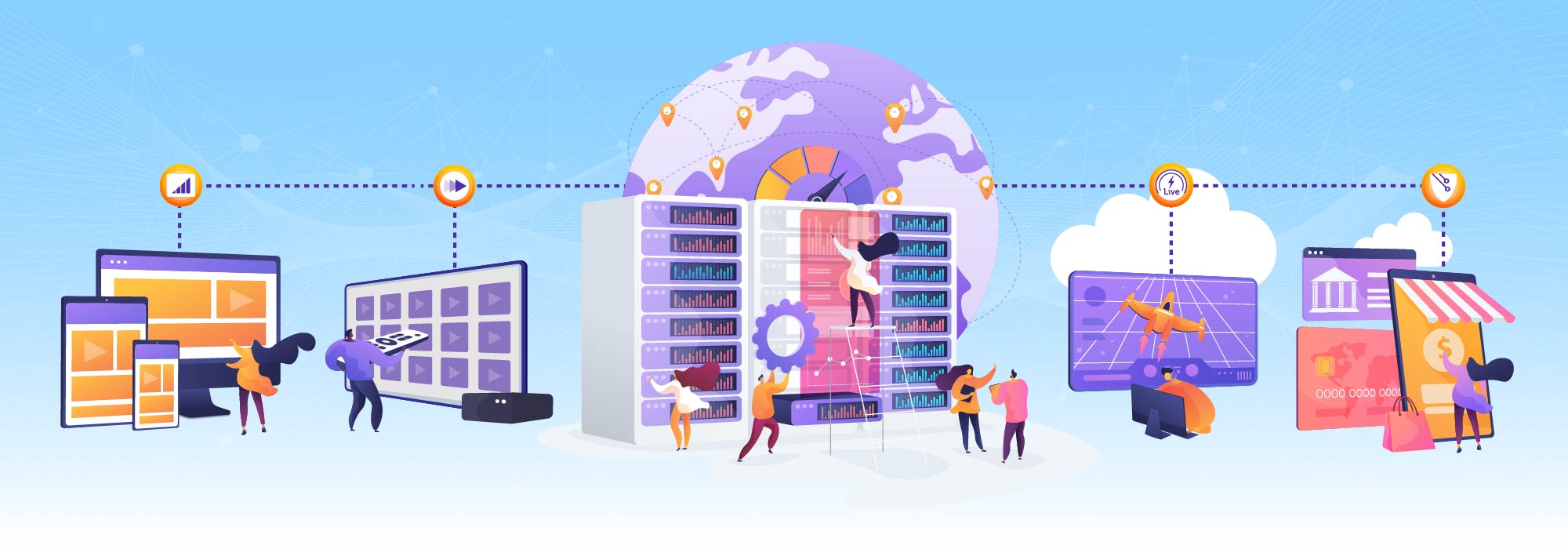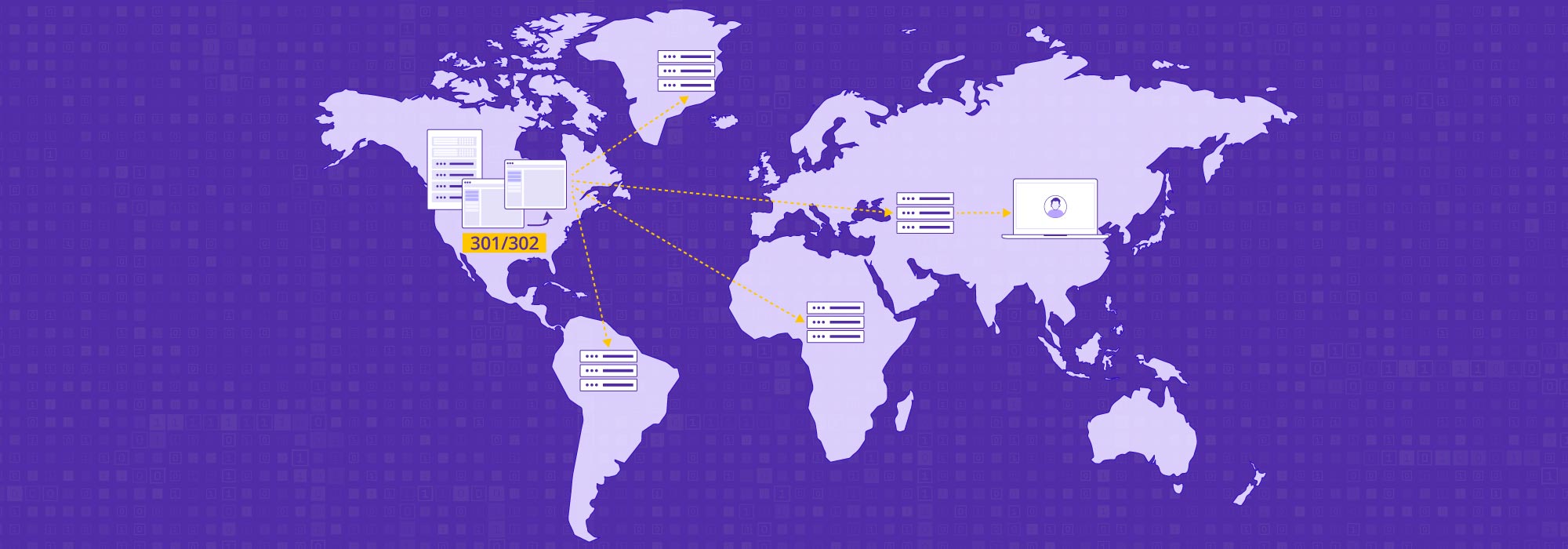The modern digital ecosystem presents both opportunities and challenges for businesses delivering online content. While increasing internet penetration has opened up global markets, and faster connections have enabled richer online experiences, these advantages come with heightened consumer expectations. Users now demand immediate access to content, seamless performance, and consistent experiences across all devices—making efficient content delivery more crucial than ever.
This has led to the rise of Content Delivery Networks or CDNs. These sophisticated networks have become the backbone of modern content delivery, enabling businesses to meet growing user demands while managing costs and complexity. But what exactly is a CDN, and how can it transform your digital presence?
What Exactly is a CDN?
CDNs are networks of geographically distributed servers that allow content distribution to users with minimal latency. Through strategically located data centers, known as Points of Presence (PoPs), CDNs store and deliver cached content closer to end-users, significantly reducing the distance data needs to travel.
When someone accesses a website powered by a CDN, instead of connecting to the origin server which might be thousands of miles away, they connect to the nearest PoP. This accelerates content delivery and reduces the load on the origin server through efficient caching and distribution mechanisms. From streaming services delivering high-definition video to e-commerce platforms handling millions of transactions, CDNs have become essential infrastructure for businesses that need to ensure fast, reliable, and secure content delivery worldwide.
Read More: What is a CDN?
8 Key Benefits of Using a CDN
Understanding the advantages of implementing a CDN is crucial for any business looking to optimize its online presence. From improving user experience to enhancing security, CDNs offer a comprehensive solution to many challenges modern businesses face. Explore these key benefits in detail and see how they can transform your online operations.
1. Decrease Server Load and Improve Reliability
Nothing is infallible, including the internet. Servers go down, networks become overly congested, and connections get disrupted. CDNs enable web applications to continue operating even during these tumultuous times by balancing network traffic across their distributed infrastructure. This strategic placement of servers across vast distances means that no single server is in danger of being overloaded. This in turn frees up the overall capacity, serving a number of concurrent users, and brings down bandwidth and delivery costs.
2. Improve Site Speed and Website Performance
CDNs can reduce load times by reducing file sizes, decreasing the distance between content storage and delivery points, and optimizing servers to respond faster to user requests. This is immensely helpful for businesses that rely on their websites to deliver content quickly. Think of an e-commerce business that needs to quickly convert shoppers who land on their website into customers and grow sales. Any significant delay in page load times can lead to drop-offs, with users bouncing off the web page, exiting the site, and even moving to a competitor’s website.
With CDNs, a business can deliver high-performance website content quickly by caching content on the CDN servers closest to end-users. This content can include HTML code, image files, dynamic content, and JavaScript.
Improving site speed is also a major component of SEO, and ensuring that a website is as optimized as possible for search engine crawlers can lead to significant gains in this vital marketing channel.
3. Allow Audience Segmentation Based on User Analytics
One benefit of CDNs that may often be overlooked is their ability to provide valuable insights on the audience. CDNs today are responsible for around half of the world’s internet traffic, which means that they collect vast amounts of data on users like their internet connectivity, device usage, and more. These translate into helpful analytics that can be used in decision-making.
User analytics such as real-time load statistics, capacity per customer, most active areas, and the popularity of different content assets, form a rich source of information to understand trends and content consumption patterns. Businesses can use these insights to help their developers optimize the website further, improve the user experience, and contribute to more sales and conversions.
4. Reduce Packet Loss and Lower Network Latency
When information is transmitted across devices over the internet, such as from a website to an end-user, it is done through packets. These are small units of data that contain information about the network addresses of the source and destination, error detection and correction rules, protocol identifiers and more, along with the application or website data.
If these packets have to move across large distances and devices before reaching the end-user, some may get lost along the way. They could also be delayed, which increases latency or they may arrive at the end-user in a different order than expected, also known as jitter. All of these lead to a less than optimum user experience for the end-user, especially when the content transmitted involves high-definition video, audio, or live streaming.
5. Enable Advanced Website Security
CDNs are paramount when it comes to defending against cyber attacks, particularly both denial-of-service (DoS) and distributed denial-of-service (DDoS) attacks. In being able to absorb large quantities of junk network traffic, they are able to keep websites running even when being attacked.
This is especially helpful as attackers often aim to overwhelm important DNS servers by sending a large volume of requests. The goal is to bring this server down and along with it the website. Such downtime can inflict economic losses for a business, reputation damage, and lead to other more sinister hacks and attacks. CDNs are able to thwart such DDoS attacks by acting as a DDoS protection and mitigation platform, distributing the load equally across the entire capacity of the network and protecting data centers.
6. Enhance Content Availability
The increased consumer demands on today’s media-rich internet landscape require businesses to ensure high availability of content on their websites. The higher the traffic volume, the higher is the pressure placed on origin servers to prevent their websites from crashing and keep their content available.
Think of a business that provides video streaming services to a large user base, spread across the world. The traffic load of these service providers can often hit millions of requests per second, especially if the content is trending or topical. This can cause the origin server to fail, causing an outage and resulting in poor experience and unsatisfied consumers.
CDNs are capable of absorbing all this traffic and spreading it across its distributed infrastructure, allowing a business to enhance its content availability irrespective of the load. If one server happens to go down, other points of presence (PoPs) can pick up the traffic and keep the service uninterrupted.
7. Contribute to Cost Savings
Because of their ability to thwart cyber attacks and optimize content delivery, CDNs help reduce costs in multiple ways:
- Reducing the number of exchanges between users and origin servers
- Optimizing bandwidth usage through efficient content caching
- Limiting data transfers by caching frequently accessed content
- Decreasing web hosting costs through distributed content delivery
- Preventing costly downtime and server outages
In general, going with a CDN provider will help businesses do away with the costs of setting up infrastructure, hosting and servers across the globe. Instead, they will only need to pay according to the traffic and amount of requests, with some CDN providers giving you more granular control of costs with self-service and optimization features to manage expenses for the required performance.
8. Increase Audience Reach and Scale Effectively
CDNs make it easier and cost-effective to deliver content to users in a geographic location far away from the HQ of a business and its main servers. They also contribute to providing a consistent user experience for customers. Keeping customers satisfied will lead to a snowball effect and accelerate audience expansion, allowing businesses to scale into new markets effectively.
The Types of Businesses That Benefit From Using a CDN
Any business that has an online presence could benefit from using a CDN. With fewer interruptions to network connections, a better customer experience is achieved.
Here are some of the more common areas of business where CDNs are often found:
- E-commerce – Businesses operating in this sector are super reliant on CDNs to ensure their products are available 24/7. Companies with Continuous uptime can serve a wider audience and often result in a better customer retention rate. Both of which help to maximize profits.
- Education – The rise of online courses has grown immensely over the past decade. Now, people from all over the world can take part in the same course without the need to leave their homes. Many of these courses require students to stream audio and video lectures. Using a CDN ensures that no matter where the participant’s location is regarding the server, their user experience will not be compromised.
- Media and Entertainment – Many media and advertising sites use streaming services to deliver content to users. Using a CDN enhances this process to ensure there is less chance of any network disruption or lag, regardless of the user’s location.
- Online Gaming – Gaming is one of the most demanding applications due not only to the tremendous amount of data and transactions but also because so many players are connected at once. In order to provide the maximum uptime possible, gaming companies must implement robust systems with the greatest levels of availability, reliability, fault tolerance, and scalability. These CDN features are essential to ensure that gamers can access their games when they want to play them.
The Advantages of Selecting the Right CDN Partner
When evaluating CDN providers, it’s crucial to consider not just the technology but also the provider’s global reach and expertise in challenging markets. Look for providers with:
- Extensive Global Coverage – A robust network of Points of Presence (PoPs) across multiple continents ensures better performance in your target markets. For example, CDNetworks operates over 2,800 PoPs across 70+ countries and regions, with particular strength in challenging markets like China, Russia, and other emerging economies.
- Proven Infrastructure Capacity – The provider should have sufficient network capacity to handle traffic spikes and growing demands. This includes considerations like total bandwidth capacity, storage capabilities, and the number of edge servers available.
- Regional Expertise – Different regions present unique challenges in content delivery. Your CDN partner should have a deep understanding and infrastructure in the specific markets you serve or plan to enter. This includes knowledge of local regulations, network conditions, and performance optimization techniques for specific regions.
- Security Capabilities – Given the rising frequency of cyber threats, your CDN should offer robust security features, including DDoS protection, Web Application Firewall (WAF), and bot management capabilities.
- Technical Support and Service Level Agreements (SLAs) – Consider the level of technical support offered and the guaranteed uptime and performance metrics in the provider’s SLAs.
A provider that excels in these areas can serve as more than just a vendor – they become a strategic partner in your digital transformation journey, helping you deliver exceptional online experiences to your users worldwide while ensuring security and reliability.
For more information on how a self-service CDN could enhance your business, explore CDNetworks CDN Pro solution and get in touch today for a pricing breakdown and free trial.


